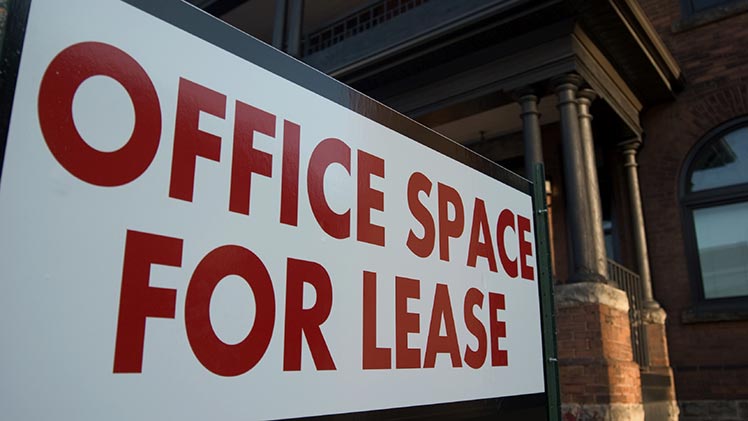 Many Brace for a Recession. Can Foresight be 20/20? With an economic downturn increasingly more likely, it's still unclear how commercial real estate will be affected. Boy, that was close... As the housing market plummeted following the subprime mortgage crisis in 2008, some economists feared that the proverbial "other shoe to drop" would be commercial real estate. The fears seemed warranted at the time. In the first quarter of 2010, office vacancy rates had climbed to 17.2% and effective rents were down 7.4% from the previous year. In turn, "distressed" property sales (defined as assets with delinquent or defaulted loans, loans in the process of foreclosure, loans where the owner is under financial pressure, and loans where a key tenant has declared bankruptcy) came to account for 19% of all office transactions and as much as 44% in some markets. Put succinctly by one Philadelphia asset manager: "properties are distressed because there are no tenants to lease up vacant space." The crash that never was Things got bad. As a sector, commercial real estate lost 40% its value during the Great Recession. At the end of the day, however, there was no crash. Owners were able to weather the storm and asset values have since rebounded to above pre-recession levels. In fact, the industry has been on a tear. Favorable interest rates and a growing economy have translated to commercial real estate property prices more than doubling since their 2009 low. In the public markets, US REITs have quadrupled in value over the same time span. It's tough to make predictions, especially about the future According to Calvin Schnure at Barrons, despite warning signals for the broader economy, commercial real estate fundamentals are solid and the impact of a recession will be mild. On the other hand, some experts believe that this coming recession could be as bad if not worse than the Great Recession. They point to factors such as the lack of room the Fed has to cut interest rates, the reliance of the office sector on wildly unprofitable technology companies and the "Retailpocalypse." No one wants a recession, especially not one of the severity following 2008. However, given the history and the industry's connection to the health of the greater economy, it's prudent to act proactively to stave off the worst impacts. There's a kicker, too. One major difference between 2008 and 2019 is the meteoric rise of PropTech. Cost-cutting your way to growth It's lesson 101 in business school. Profits are generated by making the right investments, not by implementing the right cost cutting measures. However, that mantra goes out the window during a recession when there are simply less tenants to lease up vacant spaces. In preparation for a downturn, cost cutting can significantly improve the resilience of an asset. Taking an example using the national averages from BOMA's benchmarking data, a 500,000 sq ft multi-tenant gross lease office property, with a vacancy rate of 10.12% and rental income per square foot (psf) of $26.62, will have a net operating income of $7.6 million. Assuming a cap rate of 6.71%, the asset is worth over $113 million. If the upcoming recession is half as bad as the most recent one, vacancy rates would climb to 13.66% and effective rents would go down 3.7%. In turn, the property's net operating income would decrease by nearly $900,000, translating to over $13 million of asset value (about 10%). However, had the same property reduced operating expenses by 8%, the decrease in net operating income would be under $550,000, thus salvaging $5 million of asset value in the process. As importantly, this additional operating income can be the difference between maintaining a relatively healthy debt coverage ratio and having to burn through reserves or take on high-interest emergency loans. An 8% reduction is not arbitrary. This figure is in range of the average annual savings delivered by data-driven technologies that reduce the various costs associated with operating a commercial asset. Nobody knows when exactly the recession will hit. But is the risk of waiting another budget season worth it?
Recent Case StudyHaving a system to alert operators when equipment requires maintenance is a great addition to any property. But not if the operators on the ground don't execute on the new insights. Sometimes the difference is how the information is delivered. NYCHA's Journey Enertiv integrated with the New York City Housing Authority's work order management system, Maximo, to ensure that real-time insights were being acted upon in a timely manner. Soon after, the NYCHA maintenance team reduced Mean Time to Repair (MTTR) by 95%. | 